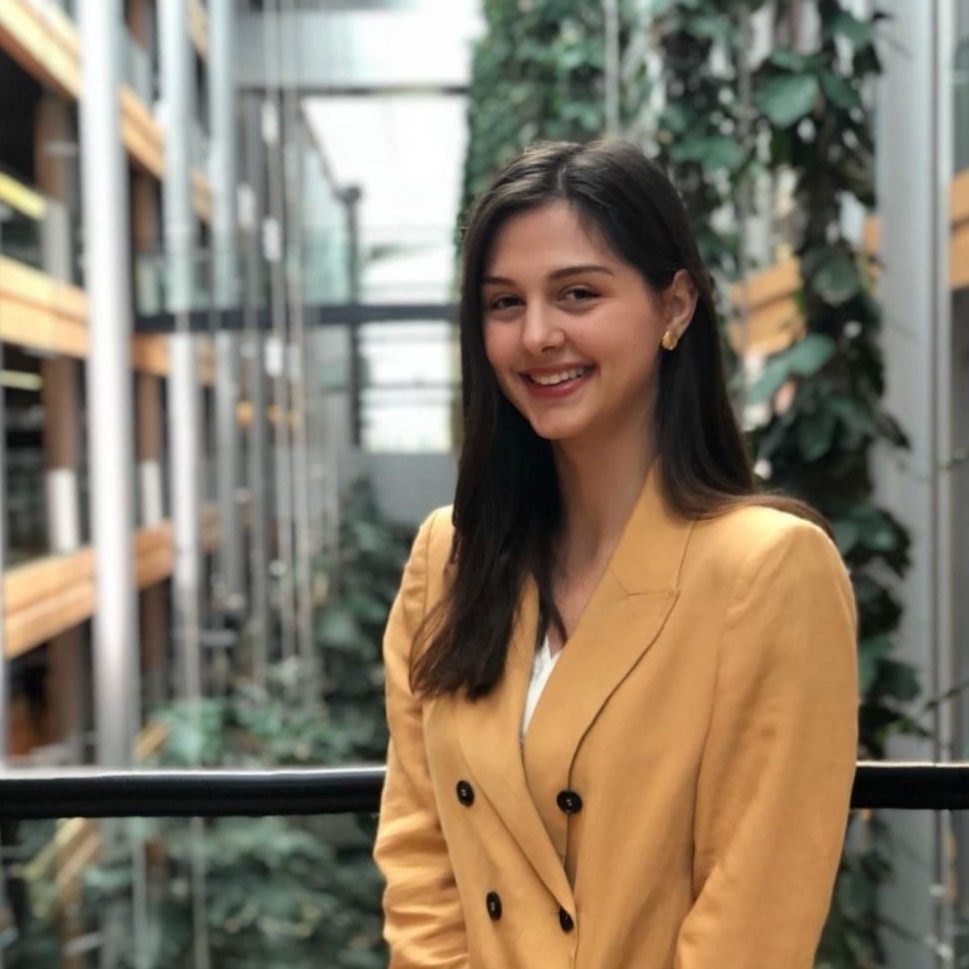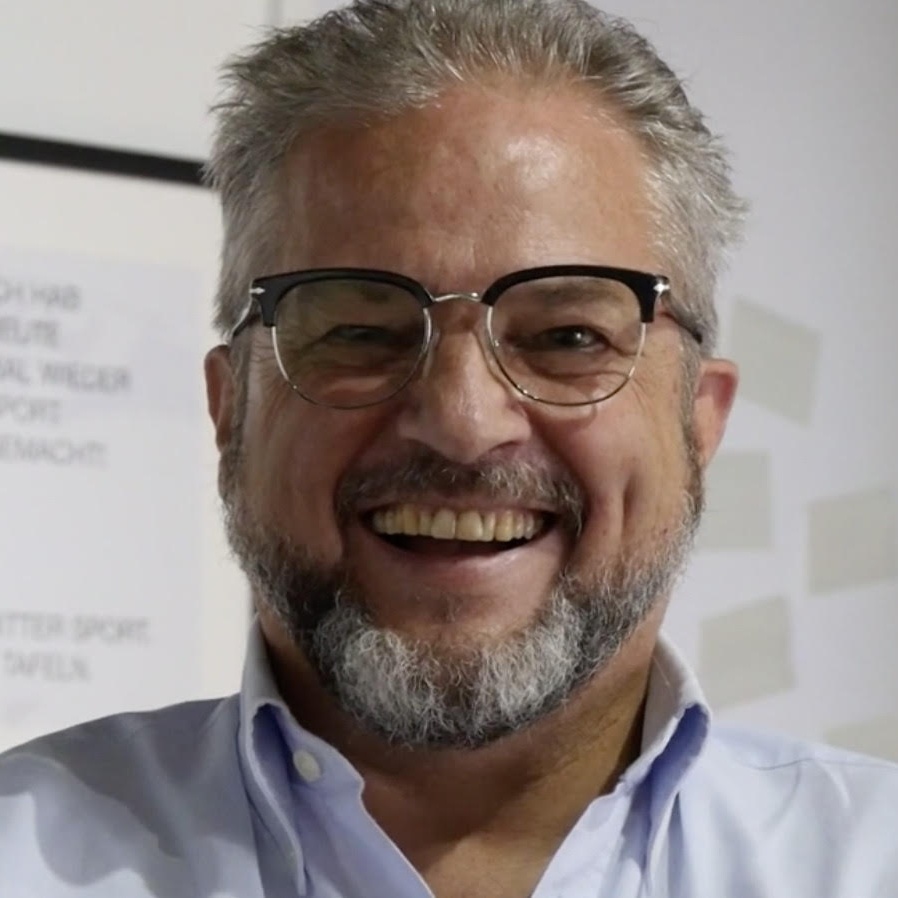
Summer 2020 Intern at
Arete Publica Associates

Summer 2020 Intern at
Arete Publica Associates

Founder and CEO of
Arete Publica Associates
31 August 2020
Our names are Anika Khakoo and Anna de Bernardi, and we are both students at Princeton University. If you had told us six months ago that we’d be working remotely as interns at a Public Affairs consulting firm based in Germany this summer, we might not have believed it! But, in the midst of the COVID-19 pandemic, college students like us are quickly realizing that this style of work — working remotely, sometimes thousands of miles away from one’s coworkers — might just be the new normal.
Before COVID-19, we had both planned to work internships in Germany. Anika was going to work at Exberliner Magazine in Berlin, and Anna was planning on doing a research internship at the IFO Institute in Munich. Naturally, it was disappointing when our internships in Germany were cancelled due to the pandemic. However, we were both lucky enough to be connected to Arete Publica Associates by Princeton’s German department, which networked us with Peter H. Hellmonds, Princeton School of Public and International Affairs alumnus and the founder and CEO of the company.
Going into this internship, we knew that this summer would be very different from a traditional one. First of all, of course, the internship was online! This was a strange change to adjust to, and over the past twelve weeks, our team has been faced with many of the obstacles associated with remote work. Obviously, the time zone issue is one of the first, involving many late-night or early-morning Skype calls. Anika lives in San Francisco, California, which is nine hours behind German time — where Peter is located — and Italian time, where Anna is. Beyond the time factor, we’ve had to learn how to work productively and symbiotically while being far apart.
It’s definitely been strange working from home. We never know when a family member might walk into the room during a Skype call, or when the Wi-Fi might stop working. But at the same time, it’s taught us resilience and has shaped the way we think about the modern workspace. In the midst of these challenges, one of our largest takeaways has been this: over the past few years, technology has transformed and expanded our global community’s capacity to connect and interact.
While the background setting of the COVID-19 pandemic is far from ideal, working remotely at Arete Publica Associates has shown us how far modern tech has come, and how far it might go in the future. These developments show promising potential for the future of accessibility to remote education. At Arete Publica Associates, our main task was to complete the company’s new website overhaul. Anika, coming from an editorial background and majoring in Art History, was tasked with editing new articles and designing web pages. Meanwhile, Anna, who is considering majoring in Economics and speaks Italian fluently and German with near-fluency, was responsible for building translations for the German and Italian versions of the site and conducting policy research.
Some of our work was done together, while some of it was done separately. Throughout the internship, we had weekly or bi-weekly meetings with Peter to discuss our work, upcoming action items, policy updates, and new information on his end. Our team had to learn how to manage remote work, and ensure that we still maintained strong communication despite not being in a conference room together. This involved questions as basic as software — we decided to use Skype as our video call platform as opposed to Zoom, because it has an integrated saved-chat feature — and as complex as productivity streamlining. We implemented check-ins, a list of action items, tutorial sessions, and brainstorming sessions to ensure that our workspace, albeit remote, still allowed for creativity, thoughtfulness, learning, and open discussion.
Despite the challenges of doing this work remotely — it would undoubtedly be easier for our team to be together in-person — we have learned how to troubleshoot, overcome obstacles, seek out support when we need it, and think creatively to work around issues. And of course, we have obtained a great wealth of knowledge about the world of Public Affairs management and consulting under Peter’s mentorship and supervision.
So yes, while the Summer of 2020 has definitely not been what we expected, we are grateful that we’ve had this experience. These hard times will go on to shape our generation’s capacity for resilience and creative thinking, and beyond this, will push us to develop technological solutions to difficult problems which we’ll face in the future. In the face of unprecedentedly challenging obstacles, we can and will overcome them.
Intern Perspective: Anna

Bio: My name is Anna and I’m a rising sophomore at Princeton from Italy. I am an Economics major studying the intersections between Economics, Finance and Public Policy. I am also interested in History, Computer Science, and Diplomacy. I would like to work within these areas in roles concerning research and/or consulting.
Q: When you found out about this remote internship at Arete Publica Associates, how did you feel? What were your expectations?
A: I was supposed to intern at the Ifo Institut in Munich this summer, and I had been looking forward to this opportunity, as it would’ve helped me better understand my interest in research for the upcoming years in the Economics department at Princeton. Of course, I was really disappointed when it got postponed and it was a huge relief to hear about the internship with Peter.
Not only would I not have an “empty” summer, but also this internship would somehow serve the same purpose as the other one, albeit in a different way: it would help me get a better understanding of the Public Affairs consulting world. This internship was especially valuable because the realm of Public Affairs consulting is usually very hard to access for undergraduates as it consists of a bit of “unicorn jobs,” where there are few positions and many applicants.
Q: What was the most challenging part of your remote work experience? What was the most rewarding?
A: At first, it was hard to gauge expectations and have a good work flow. We struggled a bit to separate tasks and maximize efficiency and, at times, communication was not smooth. The most rewarding part of our work definitely came at the end of the internship. Finally, when I went through all three language versions of the website and all the links and widgets were working properly, I was so satisfied and proud of our work. I realized our efforts had paid off and how efficient and collaborative we had become as a team.
Q: What is your favorite memory from the internship this summer?
A: Of course, it was a very rewarding experience from an academic or professional standpoint, but my favorite memories all concern the human connections we have established. It is just so heartwarming to see how close we’ve all become after starting off as strangers!
Q: What will you take away from this experience?
A: Definitely the skill to form a highly performing team with people I have never met before who work from different time zones on unfamiliar topics! It also made me much more interested in the Public Affairs world beyond just public finance policies, which is what I was first only interested in.
Intern Perspective: Anika

Bio: My name is Anika and I’m a rising junior studying Art History in the Art & Archaeology Department at Princeton. I’m from San Francisco, California, and at Princeton, I’m the Publisher of The Nassau Weekly– Princeton’s arts & culture newspaper– and I’m interested in the intersections of journalism, nonprofit work, design, and editorial work.
Q: When you found out about this remote internship at Arete Publica Associates, how did you feel? What were your expectations?
A: First of all, I think I felt a sense of relief when I was contacted by the Princeton German Department on behalf of Peter. I was planning on working at Exberliner Magazine in Berlin this summer– an English arts & culture magazine for expats in Berlin– and I was definitely sad when this opportunity was cancelled because of COVID. Finding this new opportunity with Arete Publica Associates to do something productive and meaningful was huge for me, and so I was super grateful to be considered.
I wasn’t sure what to expect from this experience, especially since going in, I didn’t have much experience with the realm of Public Affairs. I was worried that I wouldn’t be able to be a Public Affairs consulting intern when my knowledge of Public Affairs was limited. I was a bit nervous about web design as well, since my web design experience was limited prior to starting. The nine-hour time difference from California to Germany and Italy also worried me a bit. I wasn’t sure how we would communicate or establish an effective workflow.
Q: What was the most challenging part of your remote work experience? What was the most rewarding?
A: I think that the most challenging part of this remote work experience was ultimately the issue of communication at first. We had to find ways to communicate effectively from afar, establish agendas for online meetings, and coordinate time differences. I think it took us a solid month to really get into the swing of things, where we were working symbiotically. It was also challenging at first to learn how to use WordPress, but for me, this was also one of the most rewarding parts of the experience! It’s so cool to look at the website we designed and to see how far it has come over the summer, and I’m super happy with the results. While there was a steep learning curve, once we figured out how to make the remote work thing function well, it took off on its own.
Q: What is your favorite memory from the internship this summer?
A: think my favorite memory would probably have to be our end of summer virtual party, where we chatted, listened to music, brought drinks, and had the chance to celebrate all of the work we accomplished and spend time together without thinking about work. I do feel like I’ve had the opportunity to make two great friends this summer, Anna and Peter, which is pretty remarkable since none of us have ever actually met in person! It’s endearing to think that we formed such strong and positive working relationships and friendships over this summer, and these connections are undoubtedly one of my favorite parts of my experience this summer.
Q: What will you take away from this experience?
A: Well first of all, I definitely have a new toolbox of graphic and web design skills that I didn’t have before! I feel extremely comfortable using WordPress now, and am pretty confident in my site-building abilities, which is something I’m sure I’ll take away and use again and again. I also definitely learned a lot about European public policy, and the ways in which governments work with the private sector to incentivize change. I think Peter’s two decades of experience in the field made him an excellent teacher, and throughout the internship I was always learning new things about policy. On top of all of this gained knowledge, I’ll of course take away the lessons of resiliency and hard work that this experience showed me, and of course, the wonderful connections and friendships I made with my coworkers throughout the summer. While it’s not the summer I expected, I wouldn’t trade it!
Employer Perspective: Peter

Bio: Peter H. Hellmonds is the founder and CEO of Arete Publica Associates, an international public affairs management consultancy. He advises top management of companies on how to improve their relationships with their key stakeholders in politics, international organizations, industry and interest groups, as well as with non-governmental organizations. As an alumnus of Princeton University’s School of Public and International Affairs, he continues to maintain good relationships with his alma mater.
Q: This is your first experience hosting summer interns at all, not to mention your first experience hosting remote summer interns living across the globe.
A:Well, I’ve had interns before, and also remote interns, but this is the first time that I never actually met my interns in-person. All of our interactions took place electronically, using email, phone, chat, and video-calls. Also, this was the first time I had interns in my own company, and not at a company where I myself was an employee.
Q: What were your expectations going into the summer?
A: I was both excited and anxious when I learned of the opportunity in early May. Excited because I had just started two weeks earlier on a major project to update my company’s website, in order to make good use of the extra time I had due to the lack of business following the COVID-19 lockdown. I saw an opportunity to get some valuable help and feedback on this venture.
I was also very excited to be working with extremely smart and hard-working students who could provide me with insights from their generation on the graphical and layout look and feel as well as on the texts on the various pages.
But I was also anxious, because I had never hosted an entirely online internship, where a lot of the working relationship has to be built on trust. While I have experience working with peers across time zones and country boundaries online, managing interns who probably didn’t have much work experience was something else: normally, a number of initial personal meetings would provide the personal relation necessary to build a trustful relationship. In previously normal times, I would be around to give guidance and encouragement, provide mentorship, and manage the interns. But in this situation, we needed to find different ways to make up for it, because meeting in person was not an option. And typical management tools wouldn’t work either; I didn’t intend to supervise their hours and micromanage them. It was a lot of trust in advance that they would actually perform, without me having any of the carrot-or-stick incentives to provide.
In addition I was anxious because I didn’t know how well the chemistry would work out. I had no idea how much work the website update would really turn out to be, how well the interns would adjust to the schedule, or how motivated they would be if they discovered that they would be providing support to a small consulting boutique. There was a lot to consider.
Q: How have these expectations evolved over time? What came as a surprise?
A: I first wanted to give the interns, Anika and Anna, a way to get to know me before they started. Therefore, I scheduled Zoom interviews that were a first in trust-building by giving them a chance to understand what the assignment would mean and how I thought we could work together as a team. I tried to help manage both my own and their expectations by introducing the concept of different phases of teamwork: forming – storming – norming – performing, and said it would be normal for us to go through the different stages at different times, and that sometimes things could go off rail, then it would be necessary to bring us back in line.
However, what really surprised me was how well it all worked. And it was really nice seeing how we all got into the performing stage after a while as expected, and really exciting to see when things just started to fall into place one after the other! I was also very happy that I selected Anika and Anna, noticing how they became friends in the process of working as a team.
Q: Did this experience give you any insights on what the future of the modern workspace might look like? How do you feel like remote work is challenging? How is it rewarding?
A: I think we all will need to adjust to this “new normal” way of working together. If you are a traditional manager who is used to supervising and micromanaging your team, you will be in for a surprise. Because you can and should not do online surveillance when your employees work from home. So you need to learn how to trust your employees in this workspace. Some managers can adjust to that, and let their employees perform. Others will fail, and will demotivate their employees. I also have experience in working remotely in my capacity as chairman of the board of a non-profit company mainly staffed by volunteers and also as a member of the board of another volunteer association. In both these organizations the majority of work and meetings is also done remotely. From that experience I know how difficult it is to motivate staffers who constantly evaluate the benefit from their volunteer work and balance it against their other obligations and desires.
But I was extremely lucky to have two highly motivated interns who wanted to perform and who flourished under my light-handed management and leadership, where I actually gave them more and more responsibilities for self-management and team-management. We explored different tools for managing ourselves, starting with regular weekly team calls over Skype (we ditched Zoom because Skype also gave us the chance for off-line asynchronous chats, which was more suited to our different time zones). I also upgraded my cloud server to allow for collaboration directly on the documents online (similar to Google docs, but without the data security and privacy concerns). And we tried to find a common tool for making sure we keep track of assignments, due dates, and responsibilities. Anna was very great in writing weekly minutes of our meetings, and also kept a task list, reminding us of due items. Anika worked as co-admin on the Website which was a big sign of trust to give out of my hands. I was hesitant to add yet another admin, and felt sorry for Anna, who also wanted to directly administer the website. It would have made things easier for her, but I was too anxious that, as the saying in Germany goes, “too many cooks will burn the meal!”
Despite that set-back, Anna was still motivated and became extremely productive in producing not only the German translations, but also created the Italian version of the website in record time.
Q: You value the team building foundations laid out by psychologist Bruce Tuckman in 1965: “forming, storming, norming, and performing.” Why these building blocks? How did you see these phases play out this summer?
A: These are the typical phases in teamwork, and yes, they all played out during this summer. The proper sequence should actually better be forming – norming – storming – performing, but quite often storming follows forming with a disregard for norming, leading to frustrations. So, it was important for me to make sure the interns understood that a phase of frustration could be a normal phase especially when some norming was left out and storming without common rules would lead to different team members running in different directions. But I believe the open discussion of these phases also helped us to stay on track.
Q: What is your favorite memory from the internship program this summer?
A: It was very rewarding for me to hear when Anna and Anika said that they both considered me a friend towards the second half of the assignment, and it was great fun holding an online farewell party with music and drinks and no talk about work. And I was also very happy that they liked working together as a team so well that they became friends extending beyond the assignment. Finally, seeing the end product of a completely revised website makes me extremely happy and grateful for the work of my two new friends, Anika and Anna.


